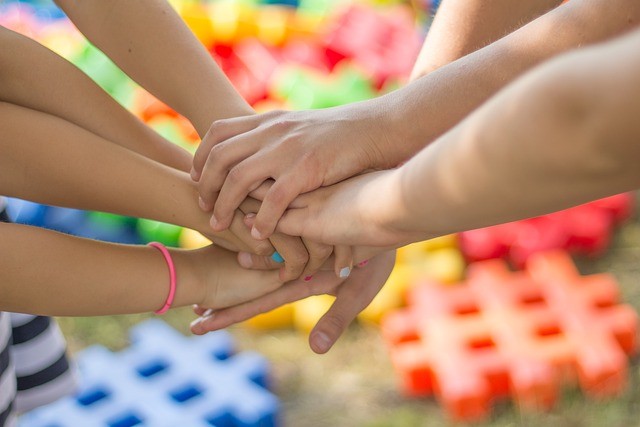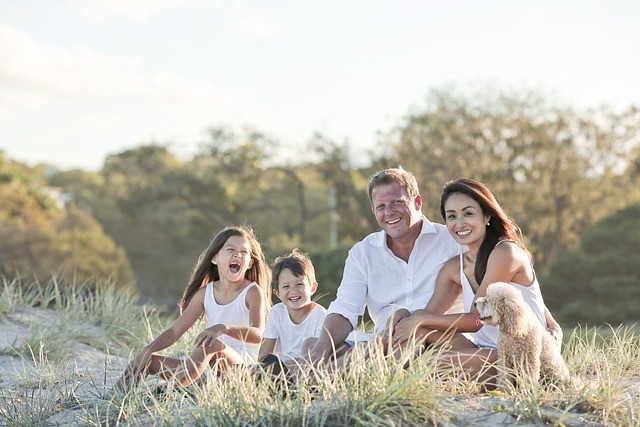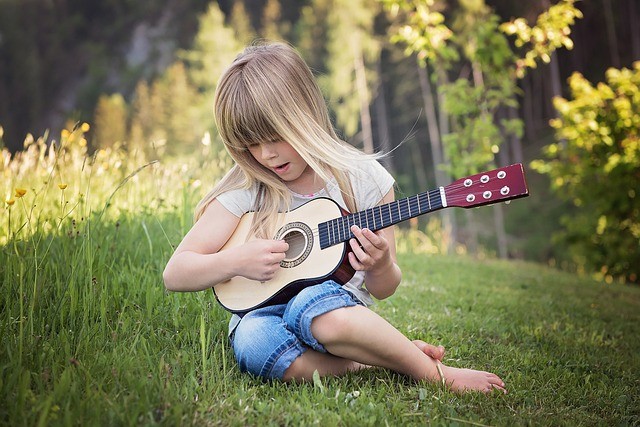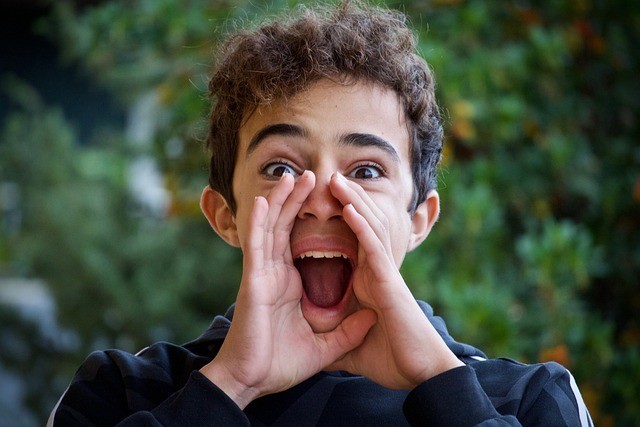Children are not born with the skills to overcome conflicts and problems from birth. It would be very useful if this was the case, but conflict resolution is something that needs to be learned and developed over time.
Of course, children may not be able to recognise or appreciate their emotions at such a young age, which can potentially worsen issues if not handled appropriately. Thankfully, as parents, we can help our children to develop the necessary skills to handle situations and steer them towards a positive outcome.
Children often find it difficult to handle conflict when they’re young due to several reasons:
- Limited Emotional Regulation: Young children are still developing their emotional regulation skills, making it challenging for them to manage and express their emotions effectively during conflicts.
- Limited Communication Skills: Children may struggle with expressing themselves clearly or understanding others’ perspectives, which can lead to misunderstandings and difficulties in resolving conflicts.
- Lack of Problem-Solving Experience: Conflict resolution requires problem-solving skills, which children are still learning. They may not have enough experience or strategies to find mutually beneficial solutions.
- Heightened Sensitivity: Children tend to be more sensitive and reactive compared to adults, making conflicts feel overwhelming or distressing for them.
- Dependency on Adults: Young children often rely on adults for guidance and support in conflict situations. If they don’t receive proper guidance or if the adults around them handle conflicts poorly, it can impact their ability to navigate conflicts independently.
Of course, with time and experience, these skills are developed. However, it’s important for parents, caregivers, and educators to provide a supportive environment that encourages open communication, teaches emotional regulation techniques, models healthy conflict resolution strategies, and helps children develop problem-solving skills gradually over time.
The Importance of Empathy in Conflict Resolution
Empathy is crucial in conflict resolution because it allows us to understand and connect with the emotions, perspectives, and experiences of others involved in the conflict. For children, empathy is a vital skill because it helps them learn to socialise with others and make friends.
Here are a few reasons why empathy is important:
- Enhances Communication: Empathy helps us listen actively and attentively to others, enabling effective communication.
- Builds Trust: When people feel understood and heard, trust is established. Empathy creates an environment where individuals feel safe expressing themselves without fear of judgment or dismissal.
- Promotes Collaboration: Through empathy, we can identify shared interests or values that help bridge differences and encourage collaboration rather than competition.
- Encourages Creative Problem-Solving: Empathy enables us to see beyond our own perspectives by considering alternative viewpoints.
- Reduces Tension: By demonstrating empathy towards each person’s feelings and experiences, tensions can be diffused as individuals feel acknowledged and validated.
- Fosters Emotional Healing: Conflicts often leave emotional wounds that need healing for relationships to mend fully. Empathetic responses show compassion towards these emotional wounds, facilitating the process of forgiveness, reconciliation, and moving forward together.
Empathy is a very important part of building emotional intelligence in children, which is vital for overcoming conflicts and problems in life. It’s important for parents to encourage children to see life from another person’s point of view and doing so will equip them with the tools to become open-minded as they grow, therefore overcoming issues more easily.
Practical Conflict Resolution Techniques for Parents
Helping children learn conflict resolution skills is an important part of their social and emotional development. Here are some ways you can assist them:
- Teach empathy: Encourage children to understand and consider others’ feelings by asking questions like, “How do you think they feel?” This helps them develop empathy, a crucial skill for resolving conflicts peacefully.
- Model positive behavior: Children learn by observing, so be a role model for effective conflict resolution. Show them how to communicate calmly, listen actively, and find solutions that work for everyone involved.
- Encourage communication: Teach children the importance of expressing their thoughts and feelings in a respectful manner. Encourage open dialogue and active listening skills so they can effectively communicate their needs during conflicts.
- Problem-solving activities: Engage children in problem-solving activities that require cooperation and compromise. For example, give them puzzles or games where they need to work together to find solutions or create scenarios where they have to negotiate with each other.
- Use books and stories: Read books or tell stories that highlight characters facing conflicts and finding peaceful resolutions. Discuss the characters’ actions with your child afterward to reinforce positive conflict resolution strategies.
- Practice deep breathing techniques: Teach children calming techniques such as deep breathing exercises or counting to ten when they feel angry or frustrated during a conflict situation.
- Role-play scenarios: Act out different conflict situations with your child, taking turns playing different roles involved in the conflict (e.g., friends arguing over a toy). Guide them through finding peaceful resolutions step-by-step.
- Encourage apologies & forgiveness: Teach children the importance of apologizing when they have done something wrong and accepting apologies from others graciously as part of resolving conflicts positively.
- Provide guidance but allow independence: Offer guidance when needed but also encourage independence in resolving minor conflicts among themselves without adult intervention whenever possible.
Remember that learning conflict resolution skills takes time; be patient with your child and provide ongoing support and reinforcement. However, always remember that children learn from their parents and it’s vital that you practice what you preach. If you feel overwhelmed or you encounter a conflict, show the same behavior you would like your child to exhibit.
How to Resolve Family Conflicts
One of the most challenging situations any parent faces is when there is a conflict within the family. Helping your child to calm down and face the problem sensibly can be difficult when emotions are heightened.
Here are a few steps you can take to help steady the ship and overcome the issue.
- Stay calm: It’s important to remain calm and composed when dealing with family conflicts. Children often mirror the emotions they see in their parents or caregivers, so staying calm will help create a more positive environment.
- Listen actively: Take the time to listen to each family member involved in the conflict, including your young children. Encourage them to express their feelings and concerns without interruption.
- Validate feelings: Let your children know that their feelings are valid and that you understand how they feel. This helps them feel heard and acknowledged.
- Teach problem-solving skills: Help your children develop problem-solving skills by encouraging them to brainstorm solutions together as a family. This teaches them how to work through conflicts in a constructive manner.
- Set clear boundaries: Establish clear rules and expectations for behavior within the family unit, ensuring that everyone understands what is acceptable behavior during conflicts.
- Encourage empathy: Teach your children about empathy by helping them understand how their actions affect others’ feelings. Encouraging empathy can foster understanding between siblings or other family members involved in the conflict.
- Use positive reinforcement: Praise and reward good behavior when conflicts are resolved peacefully or compromises are made within the family unit.
- Communicate openly: Maintain open lines of communication with your children by regularly checking in on their emotions, concerns, and needs outside of conflict situations as well.
Remember that resolving family conflicts takes time, so be patient throughout this process while providing support for all members involved.
Conclusion
Conflict resolution is an essential skill that children should be equipped with from a young age. By teaching them effective strategies to manage conflicts, we empower them to navigate through challenges and build healthy relationships. Encouraging open communication, active listening, empathy, and compromise not only helps children resolve conflicts peacefully but also fosters their emotional intelligence and social development.
It is crucial for parents, educators, and caregivers to provide a supportive environment where children feel safe expressing their feelings and concerns. By modelling positive conflict resolution techniques ourselves, we can inspire children to adopt these approaches in their own interactions.
Furthermore, incorporating conflict resolution education into school curricula can have long-lasting benefits for students. Teaching them about the importance of respect for diverse perspectives and the value of collaboration will prepare them for future challenges they may encounter in various aspects of life.
Ultimately, by instilling conflict resolution skills in our children early on, we are equipping them with tools that will serve them well throughout their lives. As they grow into responsible adults who can effectively manage conflicts with empathy and understanding, they contribute positively to creating a more harmonious society. Let us invest our time and effort into nurturing these skills within our children so that they may become compassionate problem solvers who shape a brighter future for all.




